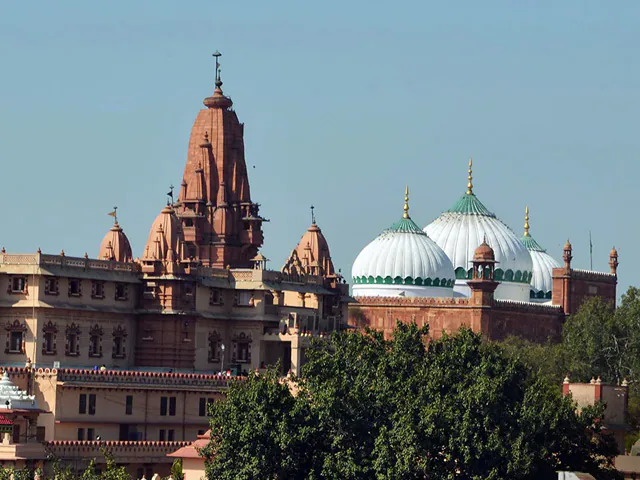The Supreme Court has intervened to pause a survey ordered by the Allahabad High Court regarding the Shahi Idgah mosque in Mathura, facing claims that it was constructed on the birthplace of Lord Krishna. The High Court’s decision to appoint a commissioner for the survey, similar to one conducted at the Gyanvapi Mosque in Varanasi, has been temporarily halted.
Supreme Court’s Perspective
The Supreme Court questioned the purpose behind appointing a commissioner, deeming the prayer for such an appointment “vague.” Justices Sanjiv Khanna and Dipankar Datta expressed the need for specificity, emphasizing that the purpose of the commissioner’s role should be clear and not left to the court’s interpretation.
Disputed History
The Shahi Idgah-Krishna Janmabhoomi dispute involves multiple pending cases, with Hindu petitioners seeking ownership of the land on which the mosque stands. Hindu groups contend that the mosque was constructed on the remnants of the Katra Keshav Dev temple, which they allege was demolished by Mughal emperor Aurangzeb. The plea for a survey is supported by claims of lotus carvings and shapes resembling the ‘sheshnag’ (snake demigod) on the mosque, presented as evidence that a temple existed at the site.
Legal Challenges
While a local court admitted the plea for a survey in December, the Uttar Pradesh Sunni Wakf Board and the Idgah committee challenged it in the High Court. The Hindu petitioners advocate for complete ownership of the disputed 13.37 acres, citing historical allegations against Aurangzeb’s orders.
Places of Worship Act and Committee’s Plea
In response to the petition, the Idgah committee invoked the Places of Worship Act of 1991, urging the court to dismiss the case. This act maintains the religious status of any place of worship as it was on Independence Day, August 15, 1947.
Conclusion
The Supreme Court’s intervention temporarily halts the survey at the Shahi Idgah mosque, adding a legal dimension to the already contentious dispute over the historical and religious significance of the site. The decision underscores the need for clarity in the legal proceedings surrounding religious places with historical claims.
Read more about Marketing News, Advertising News, PR and Finance News, Digital News.





